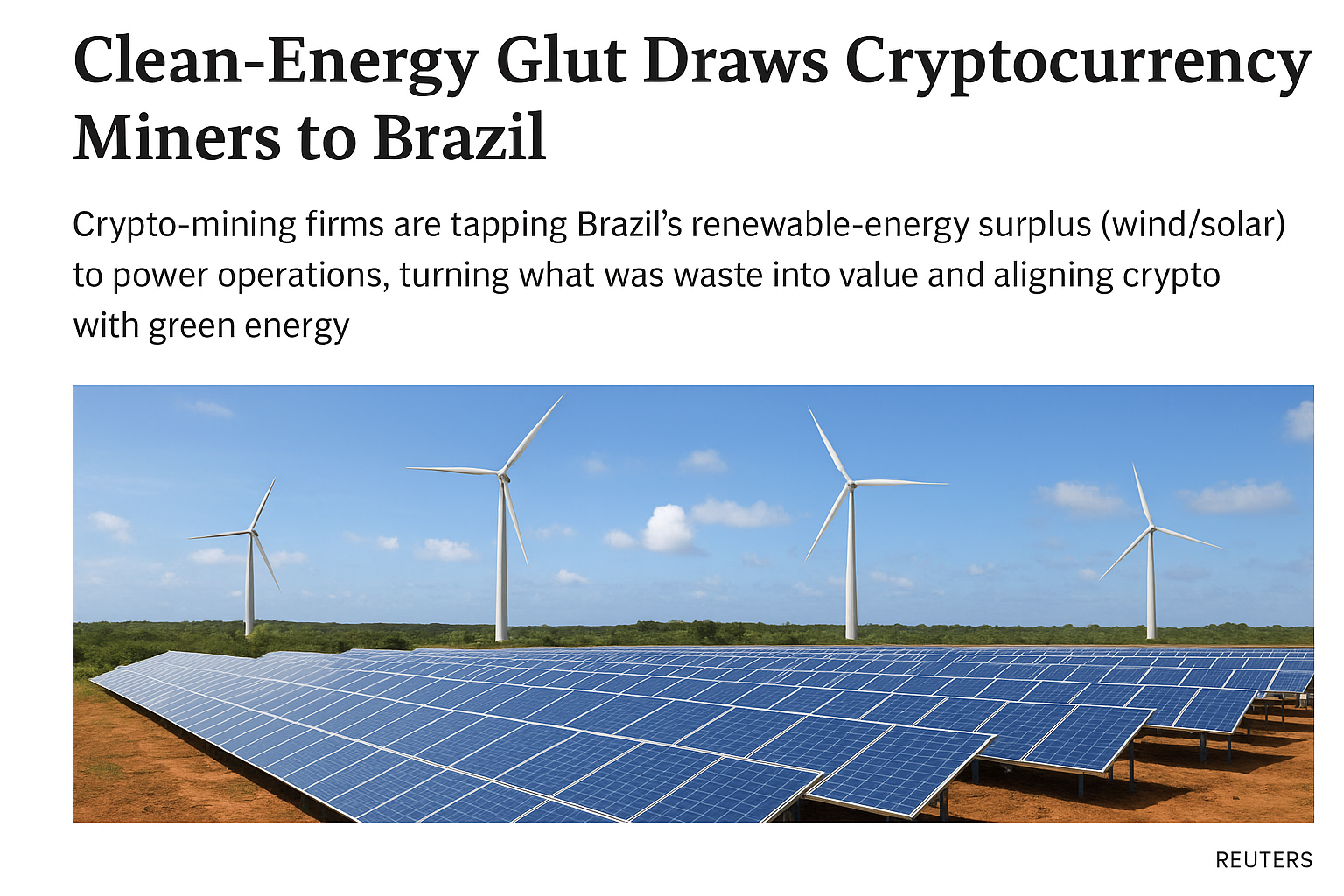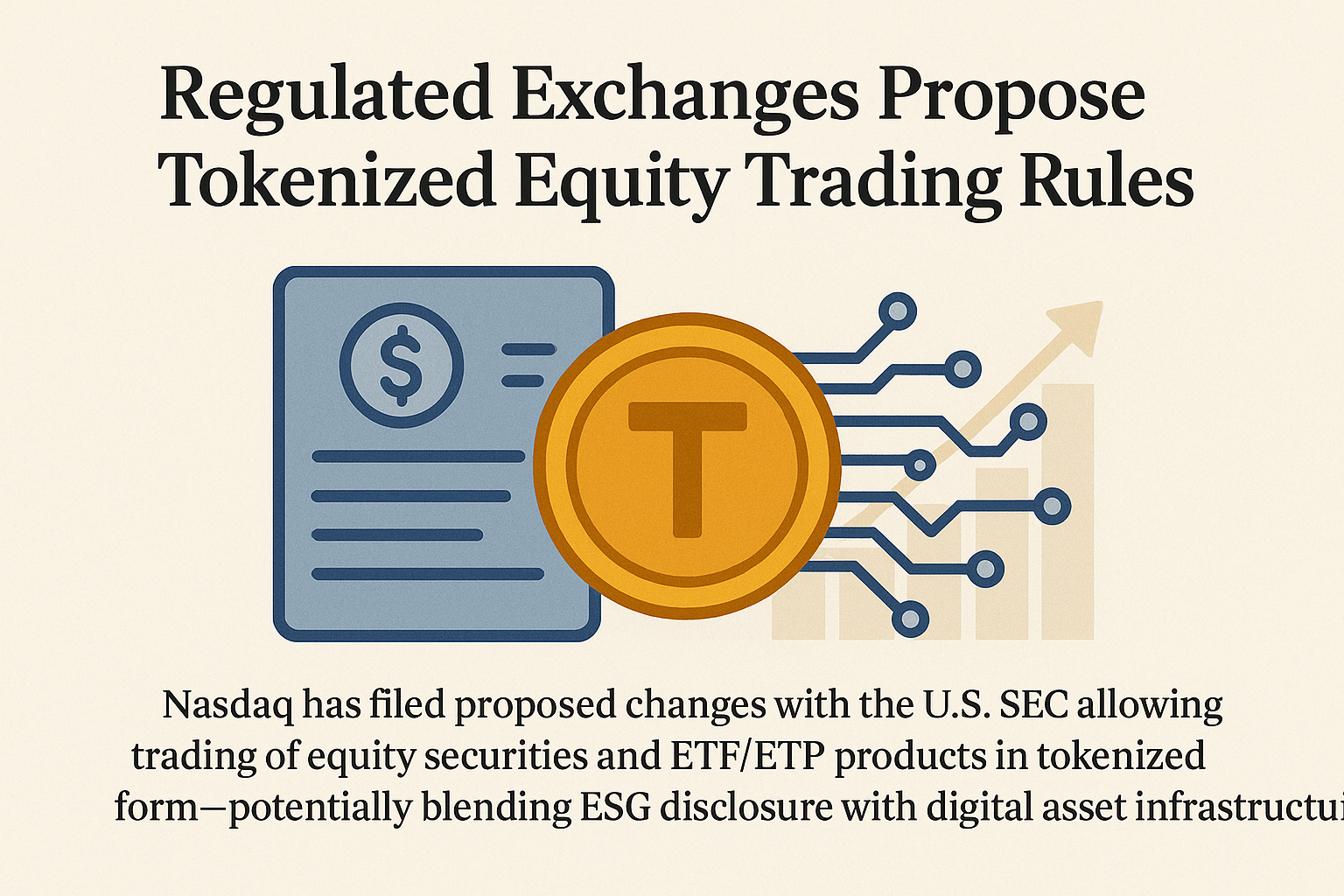Brazil has quietly become one of the most attractive destinations for the next wave of cryptocurrency mining—and not for the reasons people usually associate with the industry. Instead of cheap fossil fuels, a deregulated power market, or lax oversight, Brazil is drawing miners for something far more aligned with the future: a massive surplus of clean energy.
Across the country, especially in the Northeast, Brazil produces far more renewable electricity than it consumes. Gigantic wind farms spin across the coast, while sprawling solar parks turn the region’s intense sunlight into gigawatts of power. At times, this surplus is so significant that energy is wasted because the grid simply cannot absorb everything being produced.
Crypto miners saw an opportunity.
Transforming Oversupply Into Economic Activity
In recent years, several crypto-mining firms have begun establishing operations exactly where energy is cheapest and most abundant: next door to Brazil’s renewable generators. Instead of letting excess wind and solar production go unused, miners effectively act as a flexible energy sink, consuming electricity that would otherwise have no buyer.
This model benefits all parties:
-
Energy producers monetize surplus, improving the financial viability of renewable projects.
-
Miners access clean, inexpensive power, drastically reducing operating costs.
-
Local regions gain new investment, jobs, and infrastructure.
In a global industry often criticized for high carbon emissions, Brazil presents something rare: crypto mining that is sustainable by design.
A Natural Fit for a Renewable Superpower
Brazil is already one of the world’s cleanest electricity producers. Hydropower has dominated the grid for decades, and the rapid expansion of wind and solar now adds even more stability and resilience. Unlike many countries struggling with intermittent supply, Brazil’s combination of hydro reservoirs and growing renewable penetration makes it uniquely suited for energy-intensive computing.
For miners, this creates a nearly ideal environment: low emissions, predictable costs, and long-term policy support for green energy infrastructure.
A Quiet Shift in the Global Mining Map
While the U.S., Kazakhstan, and parts of Europe have captured headlines for their crypto-mining booms, Brazil is emerging as a quieter, more sustainable hub. The country’s advantages are structural and long-term, not artificial incentives that may expire.
If global regulations increasingly pressure miners to reduce carbon footprints—and that trend is already accelerating—Brazil may become one of the most desirable jurisdictions for responsible mining operations.
From “Energy Waste” to Digital Value
The most compelling part of this story is its symmetry: what was once considered wasted energy is now powering the next generation of digital finance.
By aligning mining with renewable surplus, Brazil is showing that crypto and sustainability don’t have to be in conflict. Instead, they can reinforce one another—creating economic value while accelerating the green-energy transition.
Brazil’s clean-energy glut is no longer a problem.
It’s becoming an opportunity.




